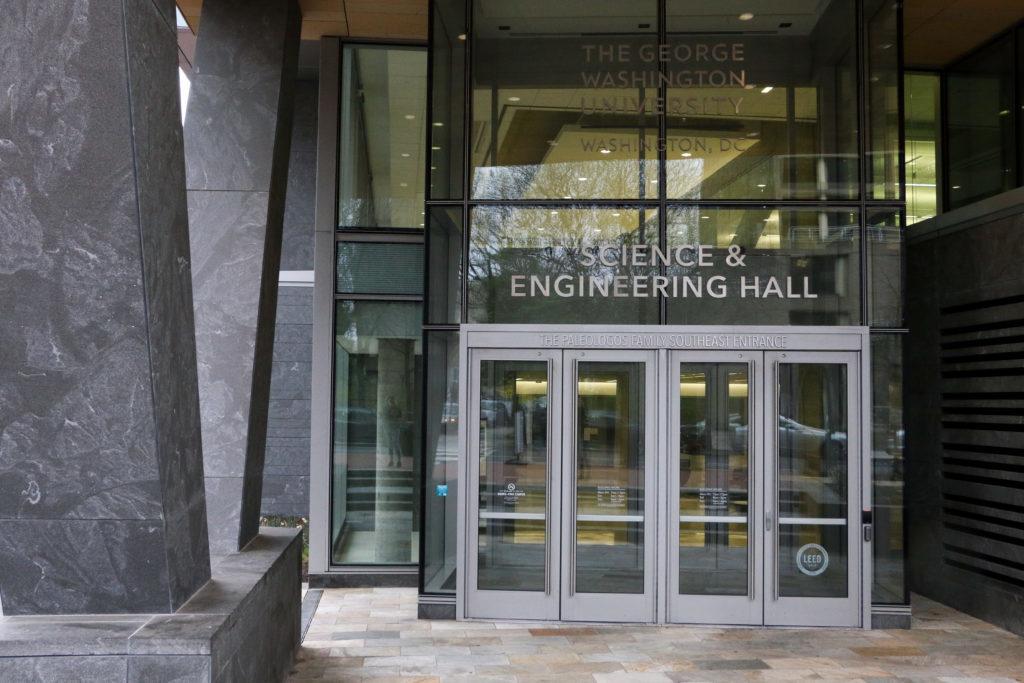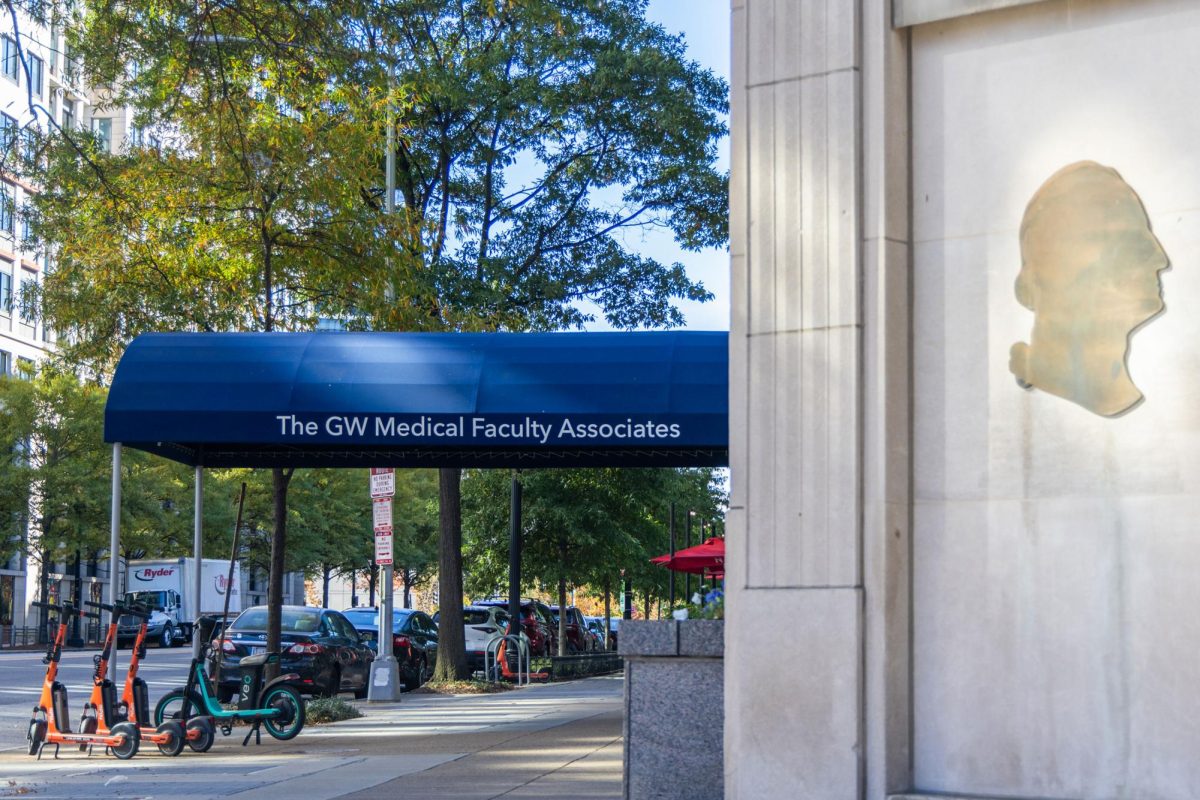Despite University President Thomas LeBlanc’s efforts to enhance STEM research and enrollment at GW, mathematics and engineering professors said they’ve been disappointed in his inability to unite the GW community behind his University vision.
LeBlanc faced mounting pressure to resign over the past year as the GW community widely opposed his controversial 20/30 strategic plan to promote STEM development at the expense of the humanities in addition to violations of shared governance principles. More than half a dozen STEM professors said LeBlanc managed the University’s COVID-19 pandemic appropriately but failed to consult the wider University community about his vision to increase GW’s focus on funding, enrollment and academics for STEM disciplines.
LeBlanc announced his intention to retire at the end of the upcoming academic year last week, saying his presidency was “disrupted” by the coronavirus pandemic. He said GW needs a successor who can focus on the University’s long-term goals as it transitions back to in-person operations.
Both LeBlanc and Board Chair Grace Speights declined to comment about his retirement and the Board’s next steps in the search for a new University president.
LeBlanc declined to say whether he feels he has effectively accommodated both STEM and non-STEM faculty.
Harald Griesshammer, an associate professor of theoretical physics and a faculty senator, said he views LeBlanc’s announcement as a “courageous” decision that will leave the University in a better position. He said LeBlanc has been unable to rally faculty behind his academic vision for GW, like his strategic plan, and his reluctance to concede to mistakes, like his racially insensitive analogy to divestment, painted him as a leader who “pushed” others rather than united them.
“He came with the best of intentions, and he was a well intentioned leader, but the way that he approached opportunities and problems were not in line with the community philosophy,” he said. “In the end, he didn’t understand GW all that well.”
Griesshammer said faculty and students have been outspoken about their opinions and dissatisfaction with LeBlanc’s leadership over the past few years, and he hopes they will “harvest” that same energy in the search for a new president. He said shared governance among administrators, Faculty Senate and Board of Trustees will be integral to the University’s future, especially in light of Speights’ comments last week, calling for civil discourse and not antagonism in shared governance.
“It has been easier for the faculty with LeBlanc in the leadership in order to say what they are not standing for,” he said. “Now, the faculty and the students have to actually articulate what we are standing for, so we need to be constructive, and we need to work with the Board.”
Hugo Junghenn, a professor of mathematics, said GW needs a greater emphasis on STEM to remain competitive and attractive in the higher education market but added that those efforts cannot come at the expense of the humanities. He said LeBlanc’s 20/30 Plan to shift resources from the humanities to STEM largely ignored faculty’s input, like concerns about reducing general enrollment and making University attendance more expensive.
He said future University leadership needs to lose its “corporate mindset” and recruit academics who will collaborate with faculty rather than dismiss them like LeBlanc did with his strategic plan.
“Administrations aren’t always keen to take the advice of faculty, and maybe sometimes they’re right because they know perhaps a little bit more about the day to day dealings of the University than faculty,” he said. “But nevertheless, LeBlanc’s administration took the art of ignoring faculty input to a new level.”
Peng Wei, an assistant professor of mechanical and aerospace engineering, said LeBlanc had a vision that supported “bigger exposure” for the School of Engineering and Applied Science in the District. Wei said he agreed with LeBlanc’s plans for GW to better connect students to the local tech industry, but LeBlanc never “materialized” this vision with concrete policy or investment initiatives, only vocal support.
Wei said he would like a more high-profile academic scholar as a future University president who could “leverage” his professional connections and network with federal agencies and local tech industries to improve opportunities for students interested in pursuing STEM fields.
“As a successful university, we not only need a good president with management skills, but also a university is a university, so we need a high profile, solid scholar,” Wei said.
Charles Garris, a professor of mechanical and aerospace engineering and faculty senator, said he was saddened by LeBlanc’s decision to leave GW and disagreed with the critical views of the president. He said LeBlanc initiated controversial but necessary fixes and restructuring within the University like tuition increases, advancements to GW’s medical enterprise initiative and a greater push toward STEM.
He said any incoming president with bold ideas to transform GW will likely face the same pushback from faculty members who have consistently attacked LeBlanc because they disagreed with his vision for GW, leaving the leadership position potentially unappealing.
“A few years ago, it was an attractive job, we had a wonderful pool of candidates, and they were really excited about it,” he said. “It looked like a wonderful opportunity for somebody who was ready to jump into a university presidency, but not now. Now it looks terrible.”











